Faculty
The Medical Physics Graduate Programs provides students with the opportunity to work closely with faculty in the departments of Radiation Oncology, Radiology, and Bioengineering. Faculty members teach courses and provide students with research, clinical, and professional development opportunities.
Dimitris Mihailidis, PhD
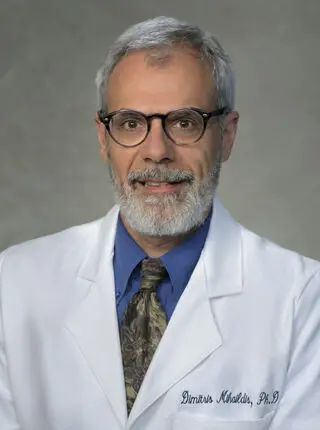
Director of the Medical Physics Graduate Programs and Associate Professor of Clinical Radiation Oncology, Department of Radiation Oncology, University of Pennsylvania Perelman School of Medicine
Dr. Dimitris Mihailidis is the Faculty Director of the Medical Physics Graduate Programs and Associate Professor of Clinical Radiation Oncology. He is past Chief of Photon Physics and Dosimetry and past Chief of Network Physics operations for the Department of Radiation Oncology. Dr. Mihailidis is certified by the American Board of Medical Physics and the American Board of Radiology in Therapeutic Medical Physics. He is an active member of several professional organizations, including the American Association of Physicists in Medicine (AAPM), the American Association Society for Radiation Oncology (ASTRO), the American Nuclear Society (ANS), and the American Physical Society (APS). Dr. Mihailidis has served in numerous leadership roles. He was elected Member-at-Large for the AAPM beginning in 2026, and currently serves as chair of the Therapy Physics Committee of the AAPM, member of the Science Council of the AAPM, member of several AAPM task groups, and an oral examiner for the American Board of Radiology. Dr. Mihailidis has published over 100 peer reviewed scientific articles, reports and book chapters and is co-author of “Khan's Lectures: Handbook of the Physics of Radiation Therapy." Dr. Mihailidis is a fellow of the American Association of Physicists in Medicine, the American College of Medical Physics, and the American Society of Radiation Oncology. His research interests include new technologies in radiation therapy and treatment deliveries, treatment plan optimization based on biological parameters, and electron beam dosimetry. His clinical responsibilities include the clinical development of new treatment techniques, implementation of novel clinical techniques in the radiotherapy external beam and brachytherapy treatments, developing polices for managing Radiation Therapy patients with implanted cardiac devices, starting up new radiotherapy physics programs, shielding and quality assurance of radiation physics, and radiation safety and protection. Dr. Mihailidis co-teaches MPHY 6080: Radiation Detection and Measurement and MPHY 6050: Medical Ethics/Governmental Regulation, and is the coordinating instructor for MPHY 6040: Radiological Physics. He serves as chair of the MPGP Faculty Advisory Committee. Dr. Mihailidis earned a BS in Physics from the University of Ioannina, Greece and a PhD in Nuclear Physics from the University of Minnesota.
Anthony Austin Kassaee, MS

Associate Director of the Medical Physics Graduate Programs and Clinical Medical Physicist, Department of Radiation Oncology, University of Pennsylvania School of Medicine
Mr. Kassaee earned a BS in Chemical Engineering from Pennsylvania State University. He earned an MS in Medical Physics and completed a residency in Therapeutic Medical Physics from the University of Pennsylvania. His clinical responsibilities include proton and photon quality assurance, machine support, and planning support. His research interests include image guided radiation therapy (IGRT), stereotactic body radiation therapy (SBRT), and proton therapy. Mr. Kassaee lectures on topics in medical physics for the Department of Radiation Oncology and serves on the Faculty Advisory Committee.
Kevin Teo, PhD
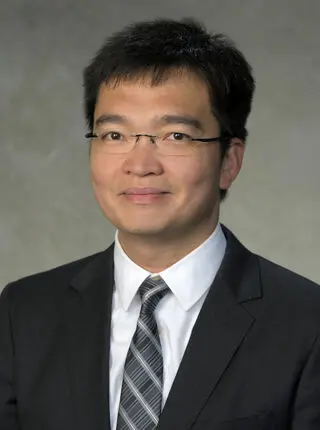
Vice Chair of the Medical Physics Division; Associate Professor of Radiation Oncology, Department of Radiation Oncology, University of Pennsylvania Perelman School of Medicine
Dr. Kevin Teo holds a BSc in Physics from National University of Singapore and a PhD in Physics from the University of Michigan. Dr. Teo’s research interests focus on adaptive therapy, proton imaging, and quantitative imaging techniques for use in radiation therapy. His clinical responsibilities include advanced technology development and clinical implementations, managing the medical physics team, and strategic planning. His clinical expertise includes proton therapy, brachytherapy, and imaging support. Dr. Teo is certified by the American Board of Radiology. He is a member of the Faculty Advisory Committee.
Stephen Avery, PhD

Professor of Radiation Oncology, Department of Radiation Oncology, University of Pennsylvania Perelman School of Medicine
Dr. Stephen Avery holds a BS in Physics from Millersville University and an MS and PhD in Experimental Nuclear Physics from Hampton University. His research interests include quality assurance in proton therapy treatment delivery and treatment planning techniques as well as global health. Dr. Avery’s clinical responsibilities include commissioning of new treatment modalities, machine/patient quality assurance for proton therapy, and treatment planning support for the proton clinic. He is certified by the American Board of Radiology. He is a fellow of the American Association of Physicists in Medicine (AAPM), is a member of multiple AAPM committees including the Global Medical Physics Education and Training Committee, and served on the AAPM Board of Directors. Dr. Avery teaches and coordinates MPHY 5000: Introduction to Global Oncology. He directed the Medical Physics Graduate Programs from 2010 – 2015 and 2018-2021.
Douglas Bollinger, MMP
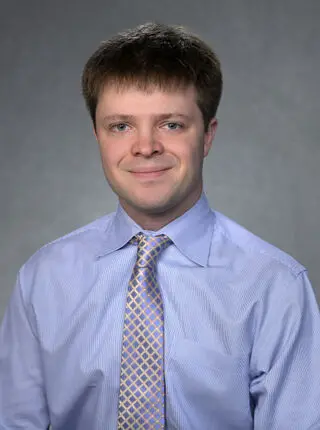
Clinical Medical Physicist, Department of Radiation Oncology, University of Pennsylvania Perelman School of Medicine
Mr. Bollinger earned BA degrees in Physics and East Asian Languages & Civilizations as well as a Master of Medical Physics from the University of Pennsylvania. He is certified by the American Board of Radiology. His clinical responsibilities are cross coverage on photon, and proton and brachytherapy services. His research interests include Halcyon, EPID, and Brachytherapy. He is a lecturer for several medical physics courses. Mr. Bollinger is Chair of the Admissions Committee and serves on the Faculty Advisory Committee.
Theresa M. Busch, PhD

Associate Director of Radiation Oncology Research and Professor of Radiation Oncology, Department of Radiation Oncology, University of Pennsylvania School of Medicine
Dr. Theresa M. Busch holds a BS in Biophysics from the University of Scranton and a PhD in Biophysics from the University of New York at Buffalo, Roswell Park Cancer Institute. Her research interests include tumor microenvironment, photodynamic therapy, radiotherapy, fluence rate, extracellular matrix, hypoxia, and innate immunity. She serves on the Research Committee.
Keith Cengel, MD, PhD

Associate Professor of Radiation Oncology, Department of Radiation Oncology, University of Pennsylvania Perelman School of Medicine
Dr. Keith Cengel holds BS degrees in Biology and Biochemistry, MS and PhD degrees in Cellular/Molecular Biology, and an MD degree from University of Illinois at Urbana-Champaign. His research interests and clinical expertise is in photodynamic therapy and radiation therapy for neuroendocrine and thoracic tumors. He teaches MPHY 6070: Radiation Biology.
Eric Diffenderfer, PhD

Associate Professor of Radiation Oncology, Department of Radiation Oncology, University of Pennsylvania Perelman School of Medicine
Dr. Eric Diffenderfer earned a BS in Physics from The Evergreen State College and an MS in Physics and PhD in Nuclear Physics from Florida State University. Dr. Diffenderfer’s research interests center on proton SARRP development, proton and neutron microdosimetry, and machine learning applications in radiation oncology. His clinical responsibilities include proton and X-ray therapy physics and dosimetry. He is board certified by the American Board of Radiology. Dr. Diffenderfer teaches MPHY 6010: Introduction to Radiation Protection and MPHY 6050: Medical Ethics/Governmental Regulation. Dr. Diffenderfer is a member of the Curriculum Committee.
Elizabeth Garver, MMP

Chief of Medical Physics - Proton Division, Department of Radiation Oncology, University of Pennsylvania Perelman School of Medicine
Ms. Garver earned a Master of Medical Physics from the University of Pennsylvania and she is certified by the American Board of Radiology. Her research interests include quality assurance practices in the proton clinic. Her clinical responsibilities include commissioning of proton treatment modalities, machine and patient quality assurance in the proton clinic, and machine/treatment planning support for the proton clinic. Ms. Garver is a member of the Faculty Advisory Committee.
Wenbo Gu, PhD
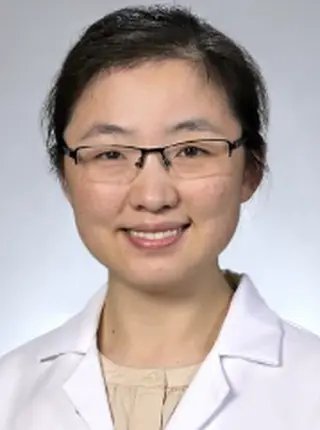
Assistant Professor of Clinical Radiation Oncology, Department of Radiation Oncology, University of Pennsylvania School of Medicine
Dr. Wenbo Gu graduated from Tsinghua University in Beijing, China with a BE in Nuclear Engineering. She earned a PhD in Medical Physics at UCLA, where her research focused on treatment planning and inverse optimization. Dr. Gu completed her medical physics residency here at the University of Pennsylvania. Her research interests include treatment planning, optimization, SRS, and proton therapy. Dr. Gu served as a manuscript reviewer for journals of Medical Physics, Physics in Medicine and Biology, Advances in Radiation Oncology, International Journal of Radiation Oncology, Biology, Physics, and IEEE Transactions on Radiation and Plasma Medical Sciences. She is certified by the American Board of Radiology. Dr. Gu co-teaches MPHY 6100: Computational Medical Physics. She is the Chair of the Curriculum Committee and serves on the Faculty Advisory Committee.
Alireza Kassaee, PhD

Associate Professor of Clinical Radiation Oncology, Department of Radiation Oncology, University of Pennsylvania Perelman School of Medicine
Dr. Alireza Kassaee holds a BS in Electrical Engineering and PhD in Physics from the State University of New York at Buffalo. His research interests include proton, photon, and electron clinical beam dosimetry; protoacoustic method for in vivo proton range verifications; and proton treatment planning. His clinical responsibilities include proton, photon, and electron clinical radiotherapy and dosimetery measurements; and machine acceptance, commissioning, quality assurance and quality control in radiotherapy. He is certified by the American Board of Radiology. Dr. Kassaee co-teaches MPHY 6080: Radiation Detection and Measurement and serves on the Curriculum Committee.
Michele Kim, PhD

Assistant Professor of Radiation Oncology, Department of Radiation Oncology, University of Pennsylvania Perelman School of Medicine
Dr. Michele Kim earned BA degrees in Physics and Biophysics, MS and PhD degrees in Physics, and a Certificate in Medical Physics from the University of Pennsylvania. She is certified by the American Board of Radiology. Her research interests include Proton FLASH radiation dosimetry and instrumentation, small animal radiobiological studies, and photodynamic therapy dosimetry. Dr. Kim's clinical responsibilities include proton and photon radiotherapy, quality assurance, and machine/treatment planning support. Dr. Kim coordinates MPHY 6000: Professional Development Seminar. She serves on the Research Committee.
Constantinos Koumenis, PhD
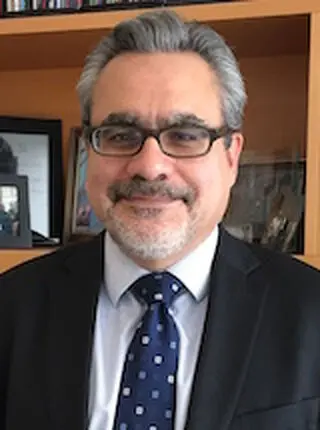
Richard H. Chamberlain Professor of Research Oncology and Vice Chair for Research, Department of Radiation Oncology, University of Pennsylvania School of Medicine
Dr. Koumenis received a BS degree in Pharmacy from the Aristotle University of Thessaloniki, Greece; a PhD degree in Biochemistry from the University of Houston in Texas; and postdoctoral training in Radiation and Tumor Biology at Stanford University. He also serves as the Associate Director for Translational Research of the Abramson Comprehensive Cancer Center at the University of Pennsylvania. His research interests include the study of the role of the tumor microenvironment on tumor progression, metastasis, and resistance to therapy. He is also interested in the development of physiological models of normal tissue damage and the development of novel radiation technologies and modalities including FLASH radiotherapy. He is currently the Principal Investigator (PI) or co-PI on multiple research and training grants from the National Institutes of Health and has published over 120 manuscripts in high-impact journals. He serves as a standing member on NIH grant review committees and is a member of the steering committee of the Radiation and Medicine Working Group of the American Association for Cancer Research. Dr. Koumenis serves on the Research Committee.
William Levin, MD

Professor of Clinical Radiation Oncology, Department of Radiation Oncology, University of Pennsylvania Perelman School of Medicine
Dr. William Levin earned a BA in Psychbiology from Franklin and Marshall College, an MS in Physiology from Georgetown University and an MD from the Sackler School of Medicine, Israel. His post-graduate medical education includes a medical internship at Yale, a residency in radiation oncology at the University of Pennsylvania, and a fellowship in proton therapy at the Massachusetts General Hospital. His clinical focus is on the management of lung cancer and soft tissue sarcomas. Dr. Levin is the Medical Director of Global Network Operations. His research interests include investigation of integrative oncology modalities as well as mind-body medicine. Dr. Levin is certified by the American Board of Radiology. He teaches MPHY 6030: Image-Based Anatomy.
Rafe McBeth, PhD
Assistant Professor of Radiation Oncology and Director of Artificial Intelligence, Department of Radiation Oncology, University of Pennsylvania Perelman School of Medicine
Dr. Rafe McBeth is a clinical scientist with expertise in computational methods for radiation therapy including artificial intelligence, Monte Carlo simulation, and automation techniques. He completed his Ph.D. in Radiation Physics in 2017 at Colorado State University, where he worked extensively on a NASA-funded research project investigating novel heavy-ion radiation dosimetry techniques for space applications. He then completed a Postdoctoral Fellowship and Medical Physics Residency Program at the University of Texas Southwestern Medical Center in Dallas, Texas. His clinical research interests include the ethical and safe integration of artificial intelligence and automation into clinical practice. Dr. McBeth serves on the Curriculum Committee and teaches MPHY 6120: Artificial Intelligence for Medicine.
Janet Reddin, PhD

Senior Research Investigator, Department of Radiation Oncology, University of Pennsylvania Perelman School of Medicine
Dr. Janet Reddin holds a BS in Physics and Geophysics from the University of Utah and a PhD in Optical Sciences from the University of Arizona. Her research interests include quantitative analysis of patient data, clinical development of the PennPET Explorer Total Body PET scanner, and clinical trials involving novel PET compounds. Dr. Reddin performs monthly, quarterly, and annual quality control procedures on clinical PET/CT and SPECT/CT scanners and acceptance testing of new scanners. She is certified by the American Board of Science in Nuclear Medicine (ABSNM) in Nuclear Physics and Instrumentation. Dr. Reddin is a member of the Curriculum Committee and the American College of Radiology Imaging Network’s PET Quality Assurance Committee.
Ivan Rosenberg, PhD
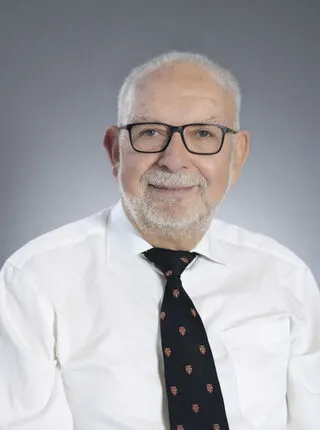
Adjunct Professor of Radiation Oncology, Department of Radiation Oncology, University of Pennsylvania Perelman School of Medicine
Dr. Ivan Rosenberg earned his PhD at the University of Cambridge, United Kingdom. He is certified by the American Board of Radiology. His research interests are in proton therapy. Dr. Rosenberg serves on the Research Committee and is an instructor for MPHY 6040: Radiological Physics.
Jufri Setianegara, PhD

Assistant Professor of Radiation Oncology, Department of Radiation Oncology, University of Pennsylvania Perelman School of Medicine
Dr. Jufri Setianegara earned a BS in Physics from the National University of Singapore, and an MA and PhD in Physics from Washington University in Saint Louis, where he also completed his residency training. His clinical expertise includes proton and photon physics support. His research expertise focuses primarily on proton dosimetry including FLASH commissioning for small animal FLASH radiobiology experiments, scripting for proton SFRT treatment planning, and proton planning. Dr. Setianegara is board certified by the American Board of Radiology. He is the co-instructor for MPHY 6040: Radiological Physics and serves on the Research Committee.
Ying Xiao, PhD

Professor of Radiation Oncology, Department of Radiation Oncology, University of Pennsylvania Perelman School of Medicine
Dr. Ying Xiao earned a BS in Optical Engineering from Tsinghua University, China. She holds an MS and PhD in Physics from Temple University. Dr. Xiao’s research focuses on the quality assurance of imaging and radiotherapy, clinical trails, and big data. Her clinical responsibilities include proton physics and informatics. She is the chair of the Medical Physics Subcommittee of NRG Oncology and she is certified by the American Board of Radiology. Dr. Xiao serves on the MPGP Faculty Advisory Committee and Research Committee.
Lingshu Yin, PhD

Assistant Professor of Clinical Radiation Oncology, Department of Radiation Oncology, University of Pennsylvania Perelman School of Medicine
Dr. Lingshu Yin is the coordinating instructor for MPHY 6060: Physics of Radiation Therapy. His clinical expertise includes proton therapy machine commissioning and quality assurance, patient-specific quality assurance, dosimetry and beam modeling of proton therapy. His research expertise includes proton irradiation with pencil beam scanning for FLASH and development of in-house clinical application such as dual energy CT, and scripting for automation in the clinic. Dr. Yin serves as a reviewer for several radiation oncology journals and an associate editor for the Journal of Applied Clinical Medical Physics. He is board certified by the American Board of Radiology. Dr. Yin earned a BSc in Physics from Nanjing University and PhD in Medical Physics from the University of British Columbia.
Timothy Zhu, PhD

Professor of Radiation Oncology, University of Pennsylvania Perelman School of Medicine
Dr. Timothy Zhu holds a BS in Electronic Engineering from Fudan University, China and an MSc in Physics, MSc in Engineering, and a PhD in Physics from Brown University. His research interests include external beam treatment planning and photodynamic therapy (PDT) physics. Dr. Zhu's clinical responsibilities include PDT physics, external beam radiation therapy, IGRT/IMRT, MU calculations, TSE/TBI, in-vivo radiation dosimetry, and machine QA. He is certified by the American Board of Radiology and American Board of Medical Physics, and has been named a Fellow by the American Association of Physicists in Medicine. Dr. Zhu co-teaches MPHY 6010: Computational Medical Physics and serves on the Research Committee.
Jennifer Wei Zou, PhD

Associate Professor of Radiation Oncology and Co-Director of the Medical Physics Residency Program, Department of Radiation Oncology, University of Pennsylvania Perelman School of Medicine
Dr. Jennifer Wei Zou earned a BS in Physics from Nanjing University, China; an MMP in Medical Physics from the University of Pennsylvania; and a PhD in Theoretical and Applied Mechanics from Cornell University. She completed a residency in Therapeutic Medical Physics at the University of Pennsylvania. Her research interests include proton knowledge based planning, machine learning, and imaging radiomics. Her clinical responsibilities include photon and proton planning support, QA and machine support, and new treatment and imaging modality commissioning and clinical application. She is certified by the American Board of Radiology. Dr. Zou co-teaches MPHY 6020: Physics of Medical/Molecular Imaging and serves on the Research Committee.
From the Department of Radiology
Joel Karp, PhD

Professor of Radiologic Physics, Department of Radiology, University of Pennsylvania Perelman School of Medicine
Dr. Joel Karp earned a BS in Physics from the State University of New York at Stony Brook and a PhD in Physics from the Massachusetts Institute of Technology. He is Director of the Nuclear Medicine Physics and Instrumentation Group and is the Sub Core Director for positron emission tomography (PET), single-photon emission computed tomography (SPECT), and computed tomography (CT) of the Small Animal Imaging Facility.
Andrew Maidment, PhD

Professor of Radiology and Chief, Physics Section, Department of Radiology, University of Pennsylvania Perelman School of Medicine
Dr. Andrew Maidment earned a BASc in Engineering Science and a PhD in Medical Biophysics from the University of Toronto. He is a member of the Abramson Cancer Center and the Institute of Medicine and Engineering as well as the Co-Director of the HHMI-NIBIB Interfaces Scholars Program in Biomedical Imaging and Informational Sciences at the University of Pennsylvania. Dr. Maidment's primary research interest is the development of novel breast cancer imaging technologies, especially digital breast tomosynthesis, and he has authored more than 400 publications. Dr. Maidment is certified by the American Board of Radiology in Diagnostic Physics. He was named a fellow of the American Association of Physicists in Medicine (AAPM) and the American College of Radiology (ACR). Dr. Maidment was selected as AAPM's President-Elect beginning in 2026 and serves as a member of numerous AAPM committees and task groups. Dr. Maidment serves on the Faculty Advisory Committee and the Curriculum Committee.
Scott Metzler, PhD

Research Professor, Department of Radiology, University of Pennsylvania School of Medicine
Dr. Scott Metzler earned a BS in physics from The Pennsylvania State University and a PhD in physics from the University of Pennsylvania. He is the CT Technology Chief in the Department of Radiology. Dr. Metzler’s research interests include the development, characterization and use of instrumentation for emission tomography. Dr. Metzler is the principal investigator of the C-SPECT project.
Peter Noël, PhD

Assistant Professor of Radiology and Director of Computed Tomography Research, Department of Radiology, University of Pennsylvania Perelman School of Medicine
Dr. Peter Noël earned bachelor’s and master’s degrees in Biomedical Engineering from the University of Applied Sciences in Guissen, Germany, and master’s and PhD degrees in Computer Science from the State University of New York at Buffalo. His research interests include spectral imaging with photon-counting detectors, advanced x-ray tube concepts, phase-contrast and darkfield imaging, reconstruction approaches, and the clinical translation of advanced technologies. Dr. Noël is a member of the Research Committee.
Alison Pouch, PhD

Assistant Professor of Radiology and Bioengineering, Department of Radiology, University of Pennsylvania School of Medicine
Dr. Alison Pouch holds BS degrees in physics and anthropology from The College of William and Mary, a PhD in bioengineering from the University of Pennsylvania, and Certificate in Biomedical Informatics from the University of Pennsylvania. She is a member of the Bioengineering Graduate Group in the School of Engineering & Applied Science. Her research interests are developing methods for computational image analysis, anatomical shape modeling, and interactive visualization to guide surgical interventions. Specifically, her work has focused on modeling heart valve morphology and dynamics in 3D echocardiography for risk stratification and planning of heart valve repair surgery. Dr. Pouch co-teaches MPHY 6020: Physics of Medical/Molecular Imaging.
Josh Scheuermann, MMP

Medical Physicist, Physics and Instrumentation Group, University of Pennsylvania School of Medicine
Mr. Josh Scheuermann graduated from St. Joseph's University with a BS in Physics and from the University of Pennsylvania with a Master of Medical Physics. As a clinical medical physicist, he supports the physics needs of the Nuclear Medicine and PET clinics, including internal dosimetry for radionuclide therapies and quality assurance for the Nuclear Medicine and PET cameras. Mr. Scheuermann serves on the Faculty Advisory Committee.
Suleman Surti, PhD
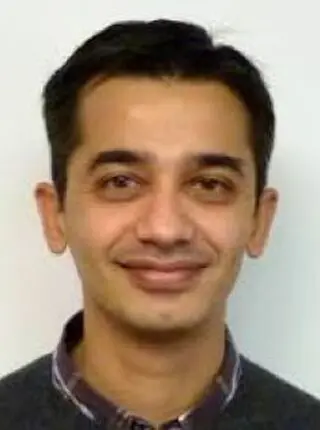
Research Professor, Department of Radiology, University of Pennsylvania School of Medicine
Dr. Suleman Surti earned BA degrees from Ohio Wesleyan University in Physics and Mathematics and a PhD in Physics and Astronomy from the University of Pennsylvania. He is a full member in the Radiobiology and Imaging Program at the Abramson Cancer Center of the University of Pennsylvania. His research interests include PET imaging - instrumentation, system modeling, image generation, and image analysis. Dr. Surti is a member of the Research Committee.
Andrew Tsourkas, PhD
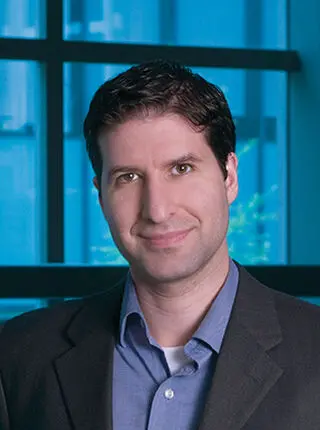
Professor, Department of Bioengineering; Assistant Professor of Radiology in Bioengineering, University of Pennsylvania Perelman School of Medicine
Dr. Andrew Tsourkas holds a BS in Mechanical Engineering from Cornell University, an MS in Mechanical Engineering from The Johns Hopkins University and a PhD in Biomedical Engineering through a joint program at the Georgia Institute of Technology and Emory University. He is a Co-Director of the Center for Targeted Therapeutics and Translational Nanomedicine (CT3N) at the University of Pennsylvania. Dr. Tsourkas is also an active member of the Institute for Medicine and Engineering (IME), the Institute for Translational Medicine and Therapeutics (ITMAT), and the Radiation Biology and Imaging Program at the Abramson Cancer Center at Penn. He is a fellow of the American Institute for Medical and Biological Engineering. Dr. Tsourkas serves on the Faculty Advisory Committee.
Paul Yushkevich, PhD
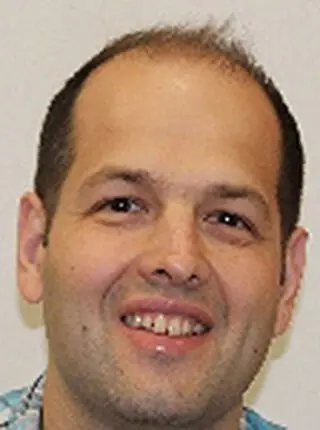
Professor of Radiology, Department of Radiology, University of Pennsylvania School of Medicine
Dr. Paul Yushkevich holds BS degrees in Computer Science and Mathematics from the University of North Carolina at Charlotte, and MS and PhD degrees in Computer Science from the University of North Carolina at Chapel Hill. He is a member of the Bioengineering Graduate Group in the School of Engineering & Applied Science. Dr. Yushkevich's research focuses on developing novel computational methodologies for the analysis of biomedical imaging data. He addresses shape analysis, shape-based normalization of brain structures, detailed structure-specific fMRI analysis, and tract-specific diffusion MRI analysis. Dr. Yushkevich teaches MPHY 6090: Biomedical Image Analysis.

